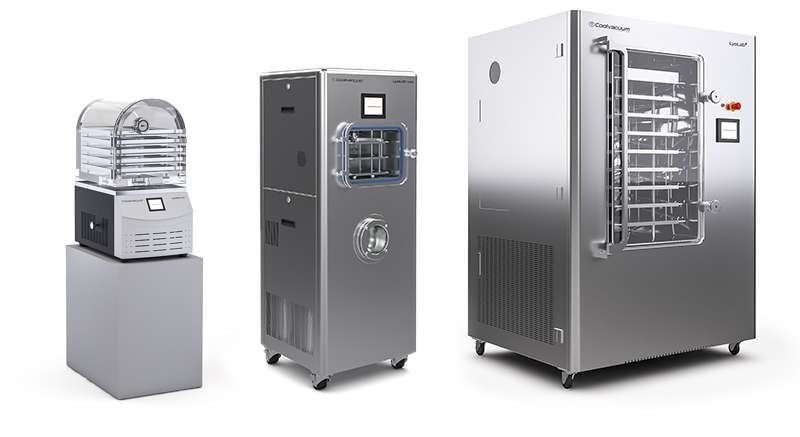Zero-Waste Living: Using Freeze Dryers for Sustainable Food Preservation

In a world increasingly focused on sustainability, zero-waste living has become a prominent lifestyle choice. One crucial aspect of reducing waste involves sustainable food preservation methods, and freeze dryers have emerged as a game-changer in this endeavor. This article explores the intersection of zero-waste living and the use of freeze dryers for sustainable food preservation.
Understanding Zero-Waste Living:
Zero-waste living is a lifestyle that aims to minimize environmental impact by reducing waste generation, particularly single-use plastics and disposable items. It involves conscious choices in daily life, from shopping for products with minimal packaging to adopting practices that prioritize reusability and recycling.
The Challenge of Food Waste:
Food waste is a significant contributor to environmental degradation. According to the Food and Agriculture Organization (FAO) of the United Nations, approximately one-third of all food produced for human consumption is lost or wasted globally. Addressing food waste is a crucial step toward achieving sustainable living practices.
Enter Freeze Dryers:
Freeze dryers play a pivotal role in sustainable food preservation, aligning seamlessly with the principles of zero-waste living. Let’s explore how these innovative machines contribute to a more sustainable lifestyle:
1. Preservation of Fresh Produce:
Freeze dryers allow individuals to preserve fresh fruits and vegetables at the peak of their ripeness. By freeze-drying produce before it reaches the point of spoilage, one can significantly reduce the amount of food that goes to waste.
2. Extending Shelf Life Without Compromising Quality:
The process of freeze drying removes moisture from food items, inhibiting the growth of bacteria and microorganisms that lead to spoilage. This not only extends the shelf life of the preserved items but does so without compromising their quality, taste, or nutritional content.
3. Minimizing Packaging Waste:
Unlike some traditional preservation methods that may require excessive packaging, freeze-dried foods often have minimal packaging needs. This aligns with zero-waste principles by reducing overall packaging waste and its environmental impact.
4. Reduction of Bulk Buying Necessity:
Zero-waste living encourages mindful consumption and discourages bulk buying that may lead to food waste. With freeze dryers, individuals can preserve smaller quantities of fresh produce without the fear of it going bad, allowing for more intentional and sustainable shopping habits.
5. Rehydration and Versatile Use:
Freeze-dried items can be easily rehydrated, offering the flexibility of using preserved foods in various recipes. This versatility ensures that individuals are more likely to utilize their preserved items fully, minimizing the chances of food waste.
6. Sustainable Meal Planning:
Incorporating freeze-dried items into meal planning promotes sustainable practices. Individuals can plan meals around preserved items, ensuring that they use what they have preserved before it reaches its maximum shelf life.
7. Energy-Efficient Preservation:
Freeze drying is an energy-efficient method of preservation compared to some other techniques. The lower energy consumption contributes to a more sustainable lifestyle, aligning with the eco-conscious goals of zero-waste living.
8. Locally Sourced and Seasonal Preservation:
Embracing freeze-drying technology allows individuals to preserve locally sourced and seasonal produce when it’s abundant. This not only supports local farmers but also reduces the carbon footprint associated with the transportation of out-of-season produce.
Conclusion:
Zero-waste living is a holistic approach that encompasses various aspects of daily life, including how we handle and consume food. The integration of freeze dryers into the zero-waste lifestyle represents a significant step toward sustainable food preservation. By reducing food waste, minimizing packaging, and promoting mindful consumption, freeze dryers empower individuals to embrace a more eco-friendly and sustainable way of living.
In the pursuit of zero-waste living, freeze dryers stand as valuable allies, offering a solution that aligns with environmental consciousness and responsible consumption practices. As more individuals adopt these sustainable technologies, the path towards a greener and less wasteful future becomes increasingly attainable.
FAQs (Frequently Asked Questions):
- Can freeze-dried foods be composted?
-
-
- Yes, freeze-dried foods are generally compostable. However, it’s advisable to check the packaging materials and remove any non-compostable elements.
-
- How long can freeze-dried foods be stored?
-
-
- When stored in proper conditions, freeze-dried foods can have a shelf life of several months to years, making them a reliable and long-lasting option for sustainable food storage.
-
- Are freeze dryers energy-efficient?
-
-
- Yes, freeze dryers are known for their energy efficiency compared to some other preservation methods. Their lower energy consumption aligns with sustainable living practices.
-
- Can freeze-dried items be used in zero-waste packaging practices?
-
-
- Absolutely. The minimal packaging requirements of freeze-dried items make them compatible with zero-waste packaging principles, allowing individuals to reduce overall packaging waste.
-
- Do freeze dryers contribute to reducing overall kitchen waste?
-
- Yes, by enabling the preservation of fresh produce before it spoils, freeze dryers significantly contribute to reducing overall kitchen waste and promoting a more sustainable, zero-waste lifestyle.
